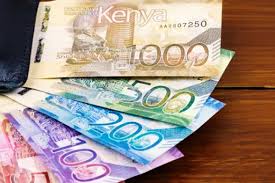

Kenya has some of the most elaborate betting taxes in Africa, with
bettors having to pay taxes on both their stakes and, if they are lucky enough
to win their bets, winnings.
The excise tax on betting stakes currently stands at 15%, while there is a 20% withholding tax on all winnings.
Kenyan authorities have essentially set out these taxes to achieve two major purposes: to recoup a reasonable percentage of betting revenue, and to curb the growth of gambling activities in the country.
The first part of that two-pronged ambition is going well enough, with the government receiving billions of shillings from the industry yearly.
According to the chairperson of the Betting Control and Licensing Board (BCLB), Dr. Jane Mwikali Makau, the government received Sh 22.3 billion from excise duty on stakes and withholding tax on winnings in the 2023 - 2024 financial year.
However, the part about curbing the rate of gambling in the industry isn't going as planned.
Despite the relatively heavy taxation, more betting companies continue to enter the Kenyan market, with the number of licensed operators currently totalling over 200.
Also, the total betting expenditure continues to grow very rapidly.
Makau's statement about the money gained from excise and withholding taxes was in response to reports in the media that Kenyans spent Sh 766 billion on gambling activities in 2024.
The BCLB chairperson stated that the figure being reported was distorted as it included money spent on unlicensed offshore betting sites - an admission that the black market still controls a good chunk of the industry.
Indeed, more than ever before, offshore sites are in demand in Kenya, as punters seek alternatives to the highly taxed licensed bookmakers.
Leading betting affiliate site, My Betting Sites Kenya, a platform that gains readers through Google, says they have received more than 7,000 impressions for Google searches related to "betting sites without tax" in Kenya in the last three months.
"It has almost become a pain point for Kenyan bettors - the taxes", says David Mwangi, editor at My Betting Sites Kenya. "We have got more than 7,000 impressions for tax-related searches in the last three months, and this is only a fraction of the overall search number".
"Unfortunately, we cannot help these bettors with betting sites without taxes, as we only promote licensed operators on our platform", Mwangi said.
That Mwangi's site does not promote unlicensed betting companies does not mean that they don't exist. There are many of them in the market serving Kenyan bettors.
The danger in patronising these kinds of sites is that they aren't accountable to Kenyan authorities, hence, the safety of their users can be compromised.
The BCLB recognises this and is working hard to take out these unlicensed bookmakers. The regulatory body believes the Gambling Control Bill, 2023, currently in the legislative process, will go a long way in curbing the activities of unlicensed bookies.
Kenya
is also furthering its mission to protect bettors in the country, with the BCLB
recently partnering with the Association of Gaming Operators in Kenya (AGOK) to launch a Responsible Gaming Drive.
It
is important that the main protagonists - in this case the BCLB and the gaming
operators - continue to work hand-in-hand to ensure that the consumers get the
best of the very delicate gaming industry.


![[PHOTOS] Ruto inspects his Naivasha farm](/_next/image?url=https%3A%2F%2Fcdn.radioafrica.digital%2Fimage%2F2025%2F06%2F72a14e8a-a040-48e1-87b3-597dbca6d7c6.jpeg&w=3840&q=100)









